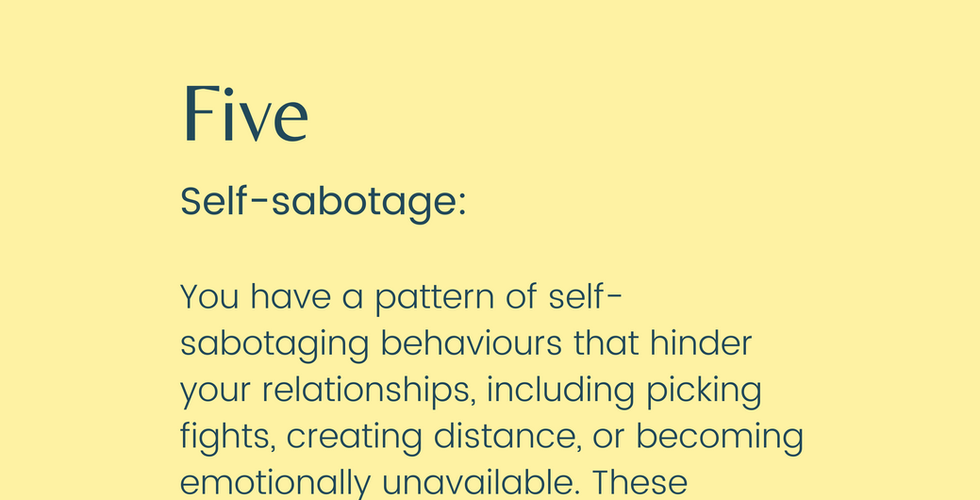Fearful-Avoidant Behaviours: How Counselling Can Help
- Clair Morrow

- Jun 28, 2023
- 2 min read
Living with fearful-avoidant behaviours can be challenging, as it often involves a constant struggle between the desire for connection and the fear of vulnerability. However, there is hope for those who find themselves caught in this cycle. Counselling, with its empathetic guidance and therapeutic techniques, can provide a transformative path towards understanding and overcoming fearful-avoidant behaviours. In this blog post, I will explore how counselling can help you to break free from this pattern and cultivate healthier, more fulfilling relationships.
Understanding the Root Causes: One of the first steps in counselling for fearful-avoidant behaviours is to delve into the underlying causes. Drawing on attachment theory, my goal is to create a safe and non-judgmental space where you can explore your past experiences and relationships, often uncovering early attachment issues or traumas that contribute to your anxieties. Understanding these root causes is essential, as it allows insight into your patterns and provides a foundation for healing.
Emotional Processing and Regulation: Unresolved emotions can greatly contribute to fearful-avoidant behaviours. By exploring and validating your feelings, you can gain a deeper understanding of your emotional needs and develop healthier ways of managing and expressing your emotions. This emotional processing helps you to build resilience and become more comfortable with vulnerability, which is crucial for nurturing intimate connections.
Building Trust and Secure Relationships: The therapeutic relationship itself plays a vital role in helping individuals overcome fearful-avoidant behaviours. Through the consistent support and empathetic presence of a therapist, you can experience a secure and trusting connection. This relationship serves as a model for healthier relationships outside the therapy room, providing you with a firsthand experience of what secure attachment feels like. Over time, you can internalize this experience and apply it to your interactions with others, leading to more satisfying and fulfilling relationships.
Conclusion: Fearful-avoidant behaviours can significantly impact your ability to form and maintain meaningful connections. However, by understanding the root causes, developing secure attachment patterns, challenging negative thoughts, processing emotions, and building trust, counselling can empower you to overcome your fearful-avoidant tendencies, cultivate healthier relationships and experience the fulfilling connections you deserve.


















Comments